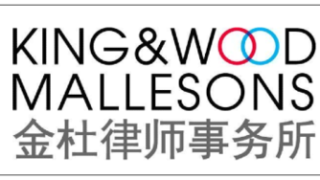Asia-Pacific
The parties have agreed on a court-guided settlement covering Pantech’s entire SEP portfolio, marking a global first
The Australian side, in particular, can benefit by capitalising on its independent status to bring in more work from Western countries while still working with its former Chinese partner
King & Wood Mallesons will break into two entities, 14 years after a merger between a Chinese and an Australian firm created the combined outfit
The association’s Australian group has filed a formal complaint against the choice of venue, citing Dubai as an unsafe environment for the LGBTQIA+ community
Recently published Special Focus articles
Recently published Special Focus articles
-
Sponsored by Remfry & SagarIn the third article from an exclusive series on the automotive industry, Cyril Abrol and Dhruv Goel of Remfry & Sagar discuss data privacy in India
-
Sponsored by Januar Jahja & PartnersDespite the widespread social, health, and economic devastation caused by COVID-19, it has largely been business as usual at the Indonesian IP Office (DGIP) since the start of the pandemic. While there certainly have been some minor disruptions and corresponding adjustments, overall the impact so far appears to have been minimal.
-
Sponsored by Griffith HackIn early 2019, IP Australia initiated a comprehensive research phase exploring Australia’s design ecosystem, including voices from the industry, design forums, economic analysis and business surveys. Following this 12-month exercise, the regulator has proposed the following changes:
-
Sponsored by Hanol IP & LawRecently, the Korean Patent Court rendered a favourable decision on the patentability of medical use inventions in which strict scrutiny was employed for two aspects of the enablement and inventiveness requirements.
-
Sponsored by AnJie Law FirmOn January 15 2020, US President Donald Trump and Chinese vice-premier He Liu signed a trade agreement which President Trump has described as "the biggest deal anybody has ever seen." The deal promises to be the first phase of a larger new trade agreement between the US and China, announcing a significant de-escalation in the trade war between the two giants that has dragged along for more than one year. Of particular interest to those in the pharmaceutical industry will be Sections C and D of the first chapter of the trade agreement, which outline China's commitments to improve protection and enforcement of pharmaceutical-related patent rights, and in particular to creating an effective mechanism for early resolution of patent disputes between generic drug companies and pharmaceutical innovators, or a Chinese drug patent linkage system, as many may like to put it.
-
Sponsored by GoldenGate LawyersOn April 21 2020, Beijing High Court issued the guiding opinions on the determination of damages in cases of infringement of intellectual property rights and unfair competition as well as the judging standards for statutory compensation ("关于侵害知识产权及不正当竞争案件确定损害赔偿的指导意见及法定赔偿的裁判标准") (opinions).




















